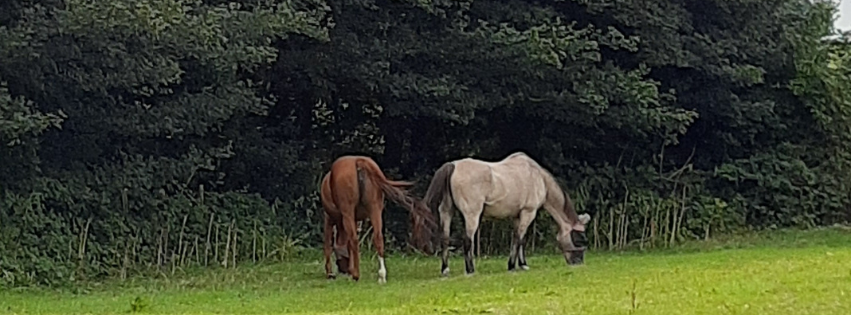Mashes
Page updated Apr'21
Okay, my take on mashes, and the simple fact that they aren't the best fuel to feed, as by their very nature the composition is dust-like so no digestion occurs. A mash literally passes straight through the gut and out the other end, so there's very little nutrient absorption, if any. One thing's for sure - you won't be adding any weight with a mash.
That said, there's a valid reason for feeding a mash. The original concept of a mash dates back to WW1, developed for very exhausted/seriously sick military horses that had no energy left to chew, in order to get them eating again. The traditional mash consisted of wheat bran (which horses love), crushed oats, linseed and salt – if Irish there was a bit of Guinness added too - so if an army horse was totally exhausted and had lost its appetite, wheat bran got them eating again.
These days? Mashes really should only be fed to seriously sick horses for the same reason - to get them eating again, or after a colic episode to help stimulate the action of peristalsis again, because a mash composition is literally crushed to dust, which passes through the small intestine at the speed of light, with barely any digestion/assimilating of nutrients happening. However, if you’re thinking of feeding a mash for nutrient value, it’s pointless.
It's always best to stick to grass forage/roughage for a couple of important reasons:
- First up, it preoccupies them – horses are very calm when they chew, which releases dopamine, the ‘reward’ hormone, so chewing helps prevent behavioural issues and stress.
- Second, chewing initiates saliva production which has 3 beneficial factors – 1) saliva buffers acidity due to its bicarbonate content, 2) it lubricates the hay-roll in the mouth for ease of transit through the oesophagus, 3) saliva contains amylase, the starch-digesting enzyme, which commences the pre-digestion of the roughage starch before arriving in the stomach/foregut.
- Third, those back molars need to grind the right way to wear their shape correctly.
- Fourth, roughage regulates the speed of the small intestinal passage.
If you're looking to get a bit of weight on an underweight horse, there are two higher protein forages out there that work wonders, especially for a poor-doer over winter. Firstly, have a look at Agrob's MyoProtein Flakes, or Simple System's Sainfoin (not alfalfa!).
I also did a blog on this very subject which may give you some pointers - Autumn/Winter Protein for our Poor Doers.




